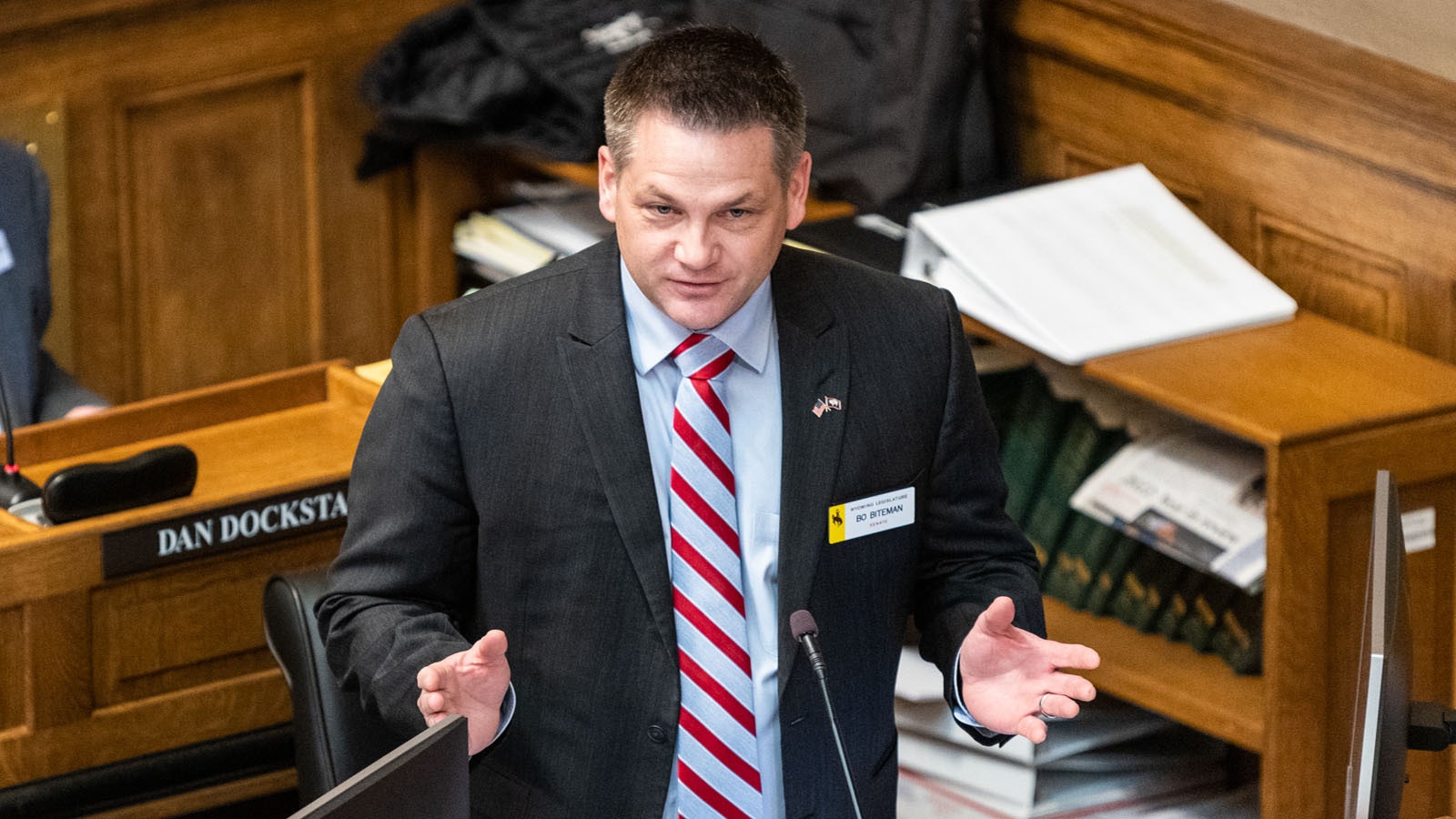Wyoming lawmakers will tackle a proposed law change Monday that would give school districts in the state’s richest areas more money to retain staff amid soaring living costs.
Senate File 51 would change the region-dependent portion of the state’s education funding system to give school districts extra money for wages.
The law now allocates some school personnel pay schedules based on a three-year cost-of-living average, calculated by region. SF 51 would allocate funding based on the greater of two amounts: either the three-year-cost of living or a one-time living-cost assessment from one recent six-month period.
Giving that “greater-than” flexibility, said the bill’s detractors, would be an “escalator” funding mechanism in law that could be difficult to rein in when inflation calms down.
‘Profitable Problem For The State’
The bill’s proponents, conversely, said Teton County and some surrounding areas are in desperate need of money to retain teachers and other staff as the cost of living has skyrocketed in the region.
“These counties have continually been outliers because of their local situation,” said Senate Education Committee Chairman Sen. Charlie Scott, R-Casper, during a Friday committee meeting. “It’s a profitable problem for the state, but we do have to make some allowances here.”
The state has recaptured, or taken in excess revenues, of more than $50 million from residential and commercial property taxes in Teton County, said former Teton County School Board member Janine Bae Teske.
Yet, Bae Teske added, “What we’re seeing is our teachers can’t afford to live there.”
The proposed law change would allocate between $220,00 and $660,000 annually to school districts with a cost-of-living problem, according to estimates in a fiscal note on the bill. It also would use $200,000 from the state’s school foundation program account for the upcoming fiscal year.
‘Another Escalator’
Sens. Cheri Steinmetz, R-Lingle, and Bo Biteman, R-Ranchester, voiced concerns about the bill, saying it could create a permanent climb in education costs with no ability for those same costs to revert downward once inflation subsides.
“This is another escalator that we’re putting into the model,” said Biteman, noting that the approximate $400,000 a year spending increase is a “drop in the bucket” compared to the entire cost of education, but that it could only rise with the proposed law change.
“It always helps on the going-up side, but there’s no relief to taxpayers on the (inflationary) going-down side,” he said, adding that he’ll likely vote against the bill when it’s time for a vote.
Steinmetz, as a newcomer to the education committee, said she’d likely vote in favor for it out of deference to the committee’s interim work on the bill, but couldn’t guarantee her aye vote on the Senate floor.

Sunset Date
Sen. Chris Rothfuss, D-Laramie, said he shares Biteman’s concern, but also is concerned that finding a way to make the regional cost increase change as suddenly as inflation rates do could create budget volatility and make hiring and firing decisions difficult for school districts.
Scott proposed a sunset date: that is, a date on which the law would revert from the “greater-than” proposition to the way it’s worded now.
Rothfuss said that’s a good proposition.
Scott said he would lay back the bill to give legislators more time to think about it before voting, and that he’d bring it back to the committee Monday and offer the option of a sunset date.





